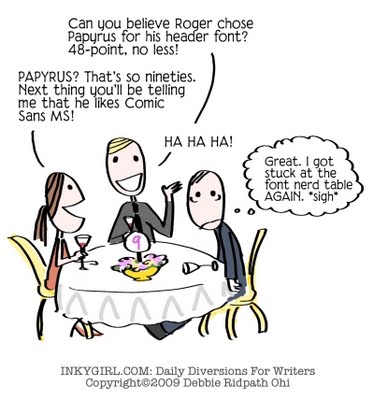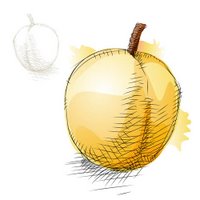Some people say that the best stories have no words. . . . It is true that words drop away, and that the important things are often left unsaid. The important things are learned in faces, in gestures, not in our locked tongues. The true things are too big or too small, or in any case always the wrong size to fit the template called language.I know that. But I know something else, too . . . Turn down the daily noise and at first there is the relief of silence. And then, very quietly, as quiet as light, meaning returns. Words are the part of silence that can be spoken.
— from Lighthousekeeping, a novel by Jeanette Winterson
aggregate
A recent news-feature in the Oregonian has stayed with me for days. I don't usually care for first-person news stories (too much reporter, not enough story) but in a piece about emergency food pantries, writer Inara Verzemnieks poetically replaced data with humanity to deftly capture the core of ache:
As I restock bags of beans, I can hear her voice, raw and sustained, outside the door, wondering what she will do now, and I think about how at certain times in our lives, it's the aggregate of little things that threaten to crush us. But that also means, as trite as it sounds, it's an aggregate of little things that might also carry us through.
Read the full story here.
And the winner is . . .
 Many thanks to those who entered the drawing to win Catching the Limit by Mark Thalman. Entries arrived via blog comments and email pleas. From a blind drawing, we are pleased to announce the winner is . . . .
Many thanks to those who entered the drawing to win Catching the Limit by Mark Thalman. Entries arrived via blog comments and email pleas. From a blind drawing, we are pleased to announce the winner is . . . .
Jerry Luger of Corvallis, Oregon.
Thanks to everyone for tuning in, reading on, and taking part. Get your copy of Catching the Limit at www.markthalman.com. Or urge your local library to purchase a copy so even more readers can enjoy the poems.
500 words
Morning Pages
Timed Writing
500 Words
It’s all the same. All attempts to provide some structure and productivity to creativity.
At Inkygirl, Debbie Ridpath Ohi offers a word-count challenge. I balked at first.
500 words. Do I really need a gimmick to get me to write? Do I really need a regime, a routine, an edict to create?
As a writer, I shouldn’t need structure or rules to make me produce. If I’m a writer, I will write. Do painters say, I must paint for 10 minutes today. Or I have a painting schedule ?
As a writer, do I really need rules and schedules?
Yes, sadly, yes.
Because, unlike painters, dancers and others artists, I avoid what I love. I avoid writing even when writing is what I love most.
It’s perverse, and over the years I’ve filled days and journals writing too much about not writing.
There’s no shortage of get-to-it books: The Artist’s Way, The War of Art, Writing the Life Poetic, and scores of online workshops and retreats.
They are good and helpful and I always feel grateful for the boost. The trouble is the writer-high is too darn short. I fall back and away. Like my morning jog, it never feels easy.
I think it will. Every morning I run (well, a slow jog, really), I expect to feel better, go faster, have more endurance. But everyday I am just grateful to get through it. As I slog to the end, I feel a buzz of accomplishment and that’s what gets me going again the next morning.
Here's the kernel of truth stuck in my stubborn back molar: Writing is an exercise. Like my jogging, writing may never get easier but my creative muscles do get tuned and ready each time I show up. And the sense of accomplishment does always arrive at the end.
500 words. Yes! I showed up. I wrote.
It’s a routine. A schedule. A commitment. And it keeps me going.
How about you?
Writer Revealed - Mark Thalman
 WIN this book!
WIN this book!
Scroll down to enter.
Welcome to the second installment of Writer Revealed, an occasional series featuring interviews with writers who intrigue and inspire.
An English teacher for 26 years, Mark Thalman has an impressive body of work as a Poet-in-the-Schools, an assistant poetry editor for Northwest Review, and a board member of the Portland Poetry Festival. His book of poems was published this summer. (Win a free copy! See details below). He was born and raised in Eugene, Oregon and now lives in Forest Grove, Oregon.
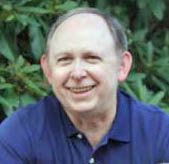 many writers, it’s difficult finding a publisher or winning a contest. This manuscript has been a semi-finalist for the Walt Whitman Award and a few other contests. Four years ago, it was selected to be part of Bedbug Press – Fairweather Books, Northwest Poetry Series.
many writers, it’s difficult finding a publisher or winning a contest. This manuscript has been a semi-finalist for the Walt Whitman Award and a few other contests. Four years ago, it was selected to be part of Bedbug Press – Fairweather Books, Northwest Poetry Series. Why is Catching the Limit dedicated to your parents and grandparents?
My parents were always very supportive and positive about getting a good education. When I was growing up, they gave me a lot of opportunities: snow skiing, playing golf, fishing, guitar lessons, taking us on trips around Oregon. My mom read Tom Sawyer and Huckleberry Finn to me when I was about five. She loved taking my sister and me to the public library to check out books. My grandparents, who were great story tellers, used to own the Willamette Pass Ski Area and had a cabin at Odell Lake. That’s where many of the poems in the second section of the book take place.
Please tell us about your writing process.
I write like an artist paints. (If you visit my website, you can also see some of my paintings.) Some poems may take a few months to finish, others have taken 16 years. A lot of times, a poem will be almost finished, but I am waiting to learn or discover what it needs to give it that finishing touch. Some poems go through a lot of revisions, others don’t. If I can write a few good lines each time I sit down, I’m satisfied.
What is your writing style?
I write lyrical poetry. Each word has its own music, and a poem has to sound right and have a presence on the page. I like to have internal rhymes, but not hard rhymes at the end a line. I love good similes and metaphors. It’s probably just easier to read you a few lines from “North Umpqua, Summer Run” so you get the idea.
In a smooth flash of motion,
deft as a blade, the fish strikes
and the surface explodes.
Trembling violently in air,
amid spray and foam,
the steelhead blazes like a mirror catching sun,
falls back, extinguishing the fire,
only to lift again,
a flame out of water.
Your poems have such a rich sense of landscape and place – specifically Oregon. Do you consider yourself a regional poet, a nature poet?
Someone said that all writing in some sense is regional, but when I sit down to write, I don’t think of myself as a regional or nature poet. Catching the Limit is about the Oregon Coast, the Willamette Valley, and the Cascades. Sure, I am interested in how a whole forest continually renews itself as in my poem, “In the Silence of a Pine Cone Falling”, or how different trees decompose in “Blowdown." There is a lot of nature in the book, but hopefully the themes and the “human condition” will transcend any regional boundaries.
Your work wonderfully combines your specific experiences/observations with universal understanding. How do you do this, and is it intentional?
(Laughs briefly and good naturedly.) Sometimes “art” happens! I can only think of a couple of poems where it is intentional. Such as the last line in “On the Dock at Evening” where the narrator says, “I have lived my life for just this moment.” That line is a response to James Wright’s well known poem “Lying in a Hammock at William Duffy’s Farm . . .” where his narrator claims, “I have wasted my life.”
Born in Oregon
Some days I am a fir. Squirrels eat from my limbs.
Other days I am a rhododendron. My genes are coded
as cuneiform. Toadstools and moss grow in the caverns
of my lungs. I am accustomed to the sky,
gray as wax paper.
What is your favorite poem in Catching the Limit and why?
I don’t have a favorite. It depends on my mood. My poems are like children, and I try to treat them equally. I like it when people tell me what their favorite is. Everyone has their own experiences and perceptions they bring to a poem.
Do you have a tight group of poet friends? And how would you suggest others cultivate a writing network?
Yes, I have a group of poet friends, most who I’ve known for a long time. However, people have become so spread out, its really the Internet that makes staying in touch possible. Over the years, my wife, Carole, has become one of my best editors, because she’s seen so much of my work and understands what I am trying to do. As far as cultivating a writing network, if a person attends writing workshops, they might find some like minded poets who want to start their own poetry group.
Where can we get your book?
Presently, Catching the Limit, can be ordered from my website, markthalman.com. Unfortunately, Tony Gorsline, my publisher, passed away this summer from cancer. With Tony’s passing, Bedbug Press – Fairweather Books did not survive, so I don’t have any small press distribution at this time. However, I will be giving some readings at bookstores, and I’ll be signing books after my reading at Wordstock (in Portland). In a few months, you should be able to find it on Amazon.com. However, if you purchase it from my site, you will always get an autographed copy, and I’ll ship it to you right away.
See Mark Thalman this fall!
• Looking Glass Bookstore
Portland, Oregon
Beyond Forgetting - Poetry Reading
Saturday, September 19, 2009, at 3pm
A reading featuring: Tess Gallagher, Holly Hughes, Alice Derry, Joseph Green, Kake Huck, Judith Montgomery, Drew Myron, Paulann Peterson, and Mark Thalman.
• Wordstock
Portland, Oregon
Oregon Convention Center
Sunday, October 11, 2009 at 3pm
* WIN a copy of Catching the Limit!
It's easy. To enter, simply write a comment below, or send an email to dcm@drewmyron.com. Provide your name and contact information. A winner will be selected at random from the entries. But hurry! All entries must be received by September 12, 2009. The lucky-ducky-limitless winner will be announced here.
Font nerds
Comic courtesy of Debbie Ridpath Ohi, a Toronto-based freelance writer, illustrator and the creator of InkyGirl.com
Pick me!
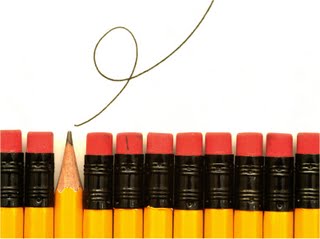 Writing White Papers has announced its 4th annual Best Blogs for Writers contest.
Writing White Papers has announced its 4th annual Best Blogs for Writers contest.
To this, I say: Pick me! Pick me!
Reason 1: Few things are more self-serving than a blog. I’ll set aside false humility and admit this blogosphere is deep and dark and I could use a thin slant of light.
Reason 2: Let’s show ‘em a writing blog that blends art and words while encouraging creative leaps.
Reason 3: Is anyone out there? Your vote could be the balm to allay fears that I am all alone in this literary life.
Vote now! It's easy, and operators (or blog masters?) are standing by, eager to accept your opinion.
To vote, visit Writing White Paper's nominations page. Entries must include:
Blog name: Off the Page by Drew Myron
URL: http://drewmyron.com/main.htm
A brief explanation of why you read this blog.
Entries are due Sept. 11, 2009.
Thank you!
Life, not so ordinary
My post office box — always a source of pleasure — was especially delightful today. Two books arrived! Both funny, tender, light but not vapid. (As a note, I’ve been on a library kick lately but these two are purchase-worthy):
Encyclopedia of an Ordinary Life by Amy Krouse Rosenthal
Just when I can’t take another my-life-is-so-profound memoir, I find this treasure that defies categorization. This 40ish author is clever, without being an ironic mocker, and tender, without rainbows and kittens. It helps that she begins with this disclaimer:
I have not survived against all odds.
I have not lived to tell.
I have not witnessed the extraordinary.
This is my story.
As usual, I’m late to the party. Encyclopedia was published in 2005 and has earned loads of accolades and attention. She’s now deep into another creative project, with yet another twist: The Beckoning of Lovely, a film being made by 200 strangers. Click below to view video.
How Not to Act Old by Pamela Redmond Satran
This book, and its companion blog, is a hoot. After a quick read, it’s clear I'm exhibiting sure signs of geezerhood. Evidence of age:
- using words like hoot and geezer
- leaving voice messages
- talking loudly into my cellphone
- still watching MASH and Seinfeld
The author is laugh-out-loud funny, offering 185 witty and wry directions. Published just this month, the book zoomed to the New York Times bestseller list in its first week, proving there are a lot of old people desperate for disguise.
Young readers respond
 Book suggestions abound! Several (young-ish) friends and family members have chimed in with their faves:
Book suggestions abound! Several (young-ish) friends and family members have chimed in with their faves:
• Inkheart, by Cornelia Funke, was suggested by my bright young friend Katy, age 9.
• The Phantom Tollbooth, by Norton Juster, got the thumbs up from my book-loving niece Kimberly, age 11.
• Mad Libs. Oh, how I love these fun word lessons cloaked in silly fill-in-the-blank stories.
• A Single Shard, by Linda Sue Park, was recommended by dedicated reader/writer Eliza.
Got any more good reads? What are your sons, daughters, nieces, nephews, friends and neighbors reading? What have I missed? Keep those suggestions coming!
Young reads
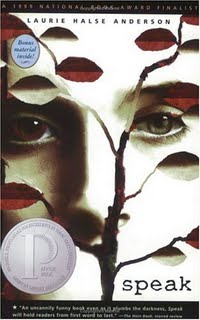
— Marilyn Nelson, author of 21 poetry books, for adult and young adult readers
Written for young readers, this season's favorites delivered fresh language and perspective:
• Speak, by Laurie Halse Anderson
• Absolutely Normal Chaos, by Sharon Creech
• From the Bellybutton of the Moon and other summer poems, by Francisco X. Alarcón
After a long run of adult fiction that works the predictable paths of mother-daughter strain or husband-wife ennui, I’m relieved to read young adult dilemmas of friendship, trust and identity. None of it trite and all of it memorable.
As I prepare for a new school year (I’ll be leading creative reading and writing activities for grade school, middle school and high school students), I’m seeking new material.
So, here's a call to all ages: What are you reading?
Young (and not so young) minds are eager and waiting. I'll absorb, savor, and post your suggestions here.
On tour
 I’m fresh from the Forecast tour.
I’m fresh from the Forecast tour.
I use the word ‘tour’ lightly, though I did travel 1,300 miles, got stuck in Seattle overnight, and was detoured by a road closure on the drive home. A few days and states later, I feel very toured.
But the journey was worth the travel: Last week, Forecast — the Tracy Weil-Drew Myron art-poetry exhibition — opened at the National Center for Atmospheric Research in Boulder, Colorado. Designed in the 1960s by I.M. Pei, the Mesa Laboratory is a collection of abstract, geometric concrete forms perched atop the highlands and in the shadow of dramatic red sandstone formations known as the Flat Irons.
It's a stunning setting for our abstract, horoscope-inspired art. And, as a glutton for press, I am delighted with the attention from Westword and the Colorado Daily. Read all about it here and here.
From the beach church
Kindness
Before you know what kindness really is
you must lose things,
feel the future dissolve in a moment
like salt in a weakened broth.
What you held in your hand,
what you counted and carefully saved,
all this must go so you know
how desolate the landscape can be
between the regions of kindness.
How you ride and ride
thinking the bus will never stop,
the passengers eating maize and chicken
will stare out the window forever.
Before you learn the tender gravity of kindness,
you must travel where the Indian in a white poncho
lies dead by the side of the road.
You must see how this could be you,
how he too was someone
who journeyed through the night with plans
and the simple breath that kept him alive.
Before you know kindness as the deepest thing inside,
you must know sorrow as the other deepest thing.
You must wake up with sorrow.
You must speak to it till your voice
catches the thread of all sorrows
and you see the size of the cloth.
Then it is only kindness that makes sense anymore,
only kindness that ties your shoes
and sends you out into the day to mail letters and purchase bread,
only kindness that raises its head
from the crowd of the world to say
it is I you have been looking for,
and then goes with you everywhere
like a shadow or a friend.
— Naomi Shihab Nye
from The Words Under the Words: Selected Poems
What is poetry?
A poem
makes us see
everything for
the first time
Francisco X. Alarcón
from Laughing Tomatoes and Other Spring Poems
Stunned, I quietly reeled through a catalog of my favorite musician/poets: Jackson Browne, Michael Franti, Tracy Chapman, Roger Waters . . .
Over the next few days I grew indignant. Of course poetry is music! Of course music is poetry! Both share a musical language, a crafting of words and sound. I came to poetry through music — for pete’s sake! As early as second grade I was reciting Harry Chapin’s Cat's in the Cradle to my peers.
In the cooling off period since the songwriting session, I have tuned down emotion and turned up intellect. If music is not poetry, What is poetry? Through research I gathered numerous esoteric — and beautifully written — responses but a tangible answer eludes me. And if I can’t answer the question, how can I explain to others why poetry is in everything, including music?
I’m looking for answers, and I’d love to hear from you.
Venice in (unintended) verse
 I haven't been to Venice. After reading the National Geographic story (Vanishing Venice, August 2009) on the Italian city wrought with tourists, I have lost desire.
I haven't been to Venice. After reading the National Geographic story (Vanishing Venice, August 2009) on the Italian city wrought with tourists, I have lost desire.But I am enamored with the writing of Cathy Newman, whose prose is poetry without the linebreaks. Every paragraph sings. Like the Found Poetry Project, I find myself breaking up blocks of text to fashion poems. For example:
Here, where everything anyone
needs to live and die must
be floated in, wrestled
over bridges, and muscled
up stairs, time is measured
by the breath of tides,
and space bracketed
by water.
The story concludes just as poetic:
Kisses end. Dreams vanish, and sometimes cities too. We long for the perfect ending, but the curtain falls along with our hearts.
Beauty is so difficult.
Skip the trip to Venice. Read Cathy Newman’s work instead.
Photograph by Jodi Cobb, for National Geographic.
first fruit
the first bite
is deep, past
the soft nap
of summer
inside, orange
is more than color
turns mealy, less
than expected
like this season
that grows
warm in
short bursts
turns cloudy
and quiet
this fruit with its
inviting orange
says savor
but slowly
enjoy this
palm-size treat
traveling from soil
to tree
to market
to me
Say Yes
His suggestion echoed that of Judyth Hill, my first poetry teacher, and applies not just to students but to all who seek to live life fully.
“My first word of advice is this: Say yes,” said Hogan. “In fact, say yes as often as you can. Saying yes begins things. Saying yes is how things grow. Saying yes leads to new experiences, and new experiences will lead you to knowledge and wisdom. . . an attitude of yes is how you will be able to go forward in these uncertain times.”
Crawl into quiet

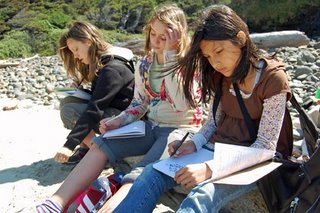 Poetry is everywhere, I tell my young students. On cereal boxes, billboards, advertisements. Look to road signs, announcements, sidewalks. Search your lives, I say, in the quiet space life expands.
Poetry is everywhere, I tell my young students. On cereal boxes, billboards, advertisements. Look to road signs, announcements, sidewalks. Search your lives, I say, in the quiet space life expands.
I spent last week in a summer camp that combined outdoor adventures with writing activities. Every day offered field trips with opportunities to reflect and write. We explored spaces and places, by turns busy and giddy, quiet and thoughtful.
We walked the span of a historic bridge, hiked from forest to sea, strolled through a working bayfront, kayaked a bay, and bicycled around town.
Between hikes, bikes, walks and talks, we played poetry poker, wrote on rocks and shells, collected words, and made fruit verse (or, as Ian wrote on his banana peel, “We created edible poetry.”)
Though the week was full of laughs and adventure, we also made room for quiet. We invited our minds to question and wander.
Rayn, 11, wondered why firetrucks are red. Is red, she wrote, the color of trust?
While hiking, Ian, 12, heard nature talking:
The trees make secrets and gossip
as we admire their beauty.
While kayaking for the first time, Kala, 13, reveled in the stillness:
When you bottom out
all you can do is push with your paddle,
or hands, or your mind.
The sound of the birds,
mixed with the beautiful beating hot sky
is almost enough to put you to sleep.
When you catch the breeze you feel fresh.
When you stop to take it all in and close your eyes
you feel like it is all a dream. At any moment you
could wake up and it would be gone.
Between the busy adventures, the Summer Camp Writers crawled into quiet to find beauty tucked around and within them. And I, grateful and encouraged, applauded their every word.
How 'bout you?
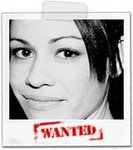 I never thought I’d reach this point. A year ago, I was tentatively embracing — a forced hug, really — the creation of this blog. I got in the groove and grew to enjoy the format. Now I maintain a steady flow of postings and follow other blogs, too.
I never thought I’d reach this point. A year ago, I was tentatively embracing — a forced hug, really — the creation of this blog. I got in the groove and grew to enjoy the format. Now I maintain a steady flow of postings and follow other blogs, too.
How about you?
Like a good book, a great movie, or a new cool dive, it's nice to savor a discovery but even better to share it with others. In that spirit, here are a few of my regular reads:
How to Party with an Infant
http://partywithaninfant.blogspot.com
Kaui Hart Hemmings, author of The Descendants, offers sassy observations on literature, life and modern motherhood.
200 Words
http://jackcantey.wordpress.com
A photographer and poet, Jack Cantey’s tanka poetry packs a punch.
The Found Poetry Project
http://www.foundpoetry.org/blog
Writers Timothy Green (editor of Rattle) and Megan O’Reilly Green find poetry everywhere, and encourage others to do the same.
How about you? Care to share your favorites?
Big, new normal
![]() Several years ago, a friend turned me onto Iconoculture, a consumer research company that delivers a savvy, sharply-written newsletter that informs, questions and illuminates.
Several years ago, a friend turned me onto Iconoculture, a consumer research company that delivers a savvy, sharply-written newsletter that informs, questions and illuminates.
Today, after a full day of summer camp kids, I returned home, dove into a tall drink and a bag of chips, and discovered I am (frighteningly) not alone in my tendency to binge.
By Josh Kimball
According to statistics released this month by the Centers for Disease Control and Prevention, 26% of adults in the U.S. were obese in 2008 (WebMD.com 7.8.09). Not only is that national number higher than in 2007, obesity is holding steady or growing in each and every state of the union.
Five or more years ago, the “globesity” epidemic was on many lips, as experts pondered the effects on our health foremost, but also contemplated what a larger populace would mean to society at large. Beyond healthcare and food, what does a spreading population mean to how we travel, how we work, how we play? Seven years later the conversation has slowed, but our growth hasn’t.
The future, though, holds some tasty nuggets of possibility. Might morphing cultural factors finally cut into our collective growth? Would a long-term shift in our broader consumer culture mean we not only buy less, but eat less, too? Might finally adding to our savings accounts correspond to a greater investment in our health? Our path out of this recession may eventually be tied with our long-term physical health. Or maybe this is just the way things are — the big, new normal.
Under the Influence
What are your influences?
That's always the question writers get asked, or ask of others. In seeking an answer to how the magic happens, 'influences' are shorthand for how do you do it? We want the recipe, or at least a taste, for what shapes and impresses those we admire.
Though no one is asking, I've been contemplating poets that move and mark me. There are poets — Tony Hoagland, Adrienne Rich, Julia Levine — whose work I read again and again, hungry to absorb and understand the agile way they thread emotion and message with a subtle but strong stitch.
Today, when I stumbled into this Tony Hoagland poem, I fell happily under the influence again.
How It Adds Up
There was the day we swam in a river, a lake, and an ocean.
And the day I quit the job my father got me.
And the day I stood outside a door,
and listened to my girlfriend making love
to someone obviously not me, inside,
and I felt strange because I didn’t care.
There was the morning I was born,
and the year I was a loser,
and the night I was the winner of the prize
for which the audience applauded.
Then there was someone else I met,
whose face and voice I can’t forget,
and the memory of her
is like a jail I’m trapped inside,
or maybe she is something I just use
to hold my real life at a distance.
Happiness, Joe says, is a wild red flower
plucked from a river of lava
and held aloft on a tightrope
strung between two scrawny trees
above a canyon
in a manic-depressive windstorm.
Don’t drop it, Don’t drop it, Don’t drop it—,
And when you do, you will keep looking for it
everywhere, for years,
while right behind you,
the footprints you are leaving
will look like notes
of a crazy song.
How It Adds Up by Tony Hoagland.
Reprinted from What Narcissism Means to Me (2003)




